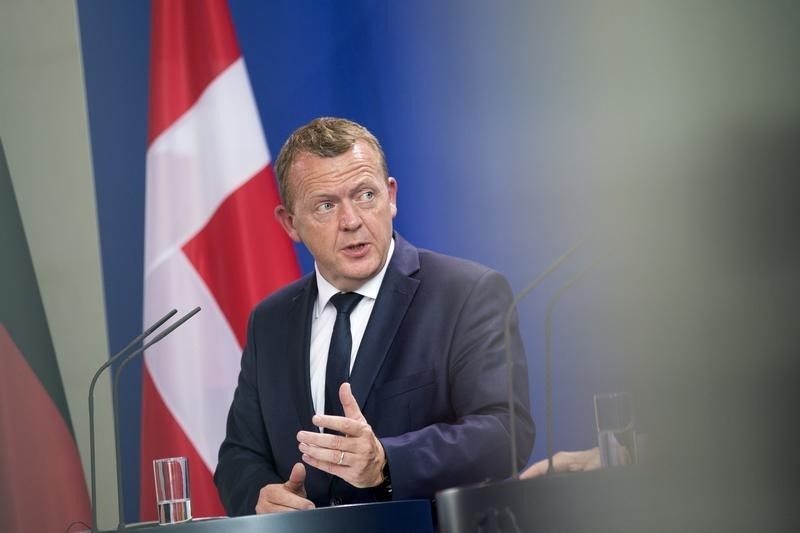COPENHAGEN (Reuters) - Danish Prime Minister Lars Lokke Rasmussen called on Monday for debate on possible changes to the Geneva Convention on the rights of refugees if Europe cannot soon curb an uncontrolled influx of asylum seekers.
Denmark was the first country to sign the 1951 U.N. convention - the legal foundation for the protection of refugees worldwide - but, like other European Union member states faced with an unprecedented inflow of asylum seekers this year, has set about tightening border checks and some immigration rules.
"There comes a time when you have to discuss (...) whether to adjust the rules of the game," Rasmussen said in an interview with Danish broadcaster TV 2.
Asked whether he meant international conventions that regulate refugee rights, he said "yes" and added: "It's clear that at some point, if Europe does not get this under control, then you have to start a discussion."
Rasmussen cited two aspects of refugee rights dealt with by the convention that he said should be reviewed, one of them touching on Turkey from where the majority of Syrian and other migrants fleeing war and deprivation have moved on to Europe.
"If you stay in Turkey for 2-3 years, (a country that itself) is free from war, should you then be allowed to head on to Europe and seek asylum? Today the rules say yes, but we need to discuss that," Rasmussen said.
The other point he mentioned was the right of refugees to have their families follow them to the new country.
Denmark's parliament has adopted a bill to enable family reunifications only after three years, for example, but has been unable to apply this to all refugees because of the Geneva Convention.
Around 18,500 migrants have applied for asylum in Denmark in 2015. The government's placement of adverts in Lebanese newspapers in September to discourage migrants from coming appeared to have little effect.

More than 1 million refugees and migrants came to the EU this year and almost 3,700 have died or gone missing in perilous journeys that reaped huge profit for smugglers, according to the International Organization for Migration.